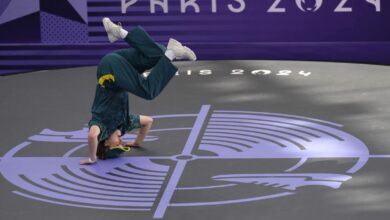Sanctions on Roman Abramovich: What Chelsea can and cannot do in the near future

Chelsea football club is now effectively under the control of the British government after sanctions were imposed against Russian owner Roman Abramovich on Thursday. This was after Abramovich, who had been under scrutiny following Russia’s invasion of Ukraine, had announced he was selling the Premier League club last week. As of now, that process is stalled leaving the club in a limbo.
Chelsea owner Roman Abramovich has been officially sanctioned. All UK assets frozen: sale of the club on hold. No merchandise or ticket sale allowed. 🚨 #CFC
Statement also reports that “new contracts, player transfers or merchandise sales for Chelsea have been prohibited”. pic.twitter.com/UYX7NaMO1f
— Fabrizio Romano (@FabrizioRomano) March 10, 2022
Chelsea, which is ranked Forbes as the seventh most valuable in world soccer at $3.2 billion, is now operating under a special government licence. “The licence is a safety net to protect the sport, the Premier League, the wider football pyramid down to the grassroots game, loyal fans and other clubs. It will deprive Mr Abramovich of benefiting from his ownership of the club and mean he cannot circumvent UK sanctions,” the government said in a statement released on Thursday evening. So how will these sanctions impact the club? Here is a brief lowdown —
Chelsea Football Club official statement 🔵 #CFC
“Chelsea intend to engage in discussions with the UK Government regarding the scope of the licence. This will include seeking permission for the licence to be amended in order to allow the Club to operate as normal as possible”. pic.twitter.com/flDLPX2mhq
— Fabrizio Romano (@FabrizioRomano) March 10, 2022
Sale and Payments
As mentioned earlier, under the exing license, Abramovich cannot sell the club. However, a spokesman for Prime Miner Boris Johnson did mention that a specific license could be granted to allow a sale to go through.
Meanwhile, the club can continue to pay salaries, allowances, and pensions. It can also receive money from other clubs for an exing loan or player sale arrangements.
It can also continue to collect television revenue and performance fees. Season ticket holders can also attend the matches.
Transfer market
In a major hit for the club, no new player sales or purchases will be allowed under the current license. Furthermore, negotiations with players whose contracts are coming to an end this season must be put on hold. This includes the likes of Cesar Azpilicueta, Andreas Chrensen among others.
Chelsea contracts situation. Andreas Chrensen has decided to join Barça. Rüdiger has been approached three clubs and he will decide soon. Azpilicueta has Barça proposal on the table [until 2024]. 🔵 #CFC
Jorginho was waiting for an answer – his deal runs out in 2023. pic.twitter.com/nwD6fd4lZa
— Fabrizio Romano (@FabrizioRomano) March 10, 2022
Travel Cost
A notable change has come in this aspect with travel costs for away games limited to a maximum of £20,000. The cost of home games which includes, security, catering and stewarding has been capped at £500,000 per game. Chelsea are scheduled to play at Lille in France in the Champions League next week.
📲 A source close to a player at Chelsea has said he believes the club have already paid in advance for all their travel for the rest of the season.
[via @SkyKaveh] pic.twitter.com/4IVZHJID4X
— Football Daily (@footballdaily) March 10, 2022
Merchandise
As far as jerseys and merchandising is concerned, third parties who purchased or produced club merchandise prior to March 10 have been allowed to sell their exing wares. However, a condition has been applied — that no funds or other financial benefits are made available to the club or Abramovich.




